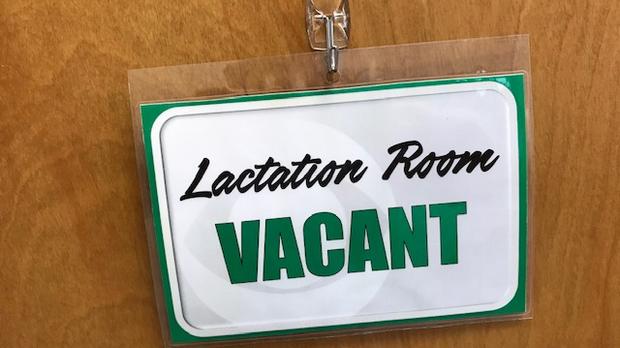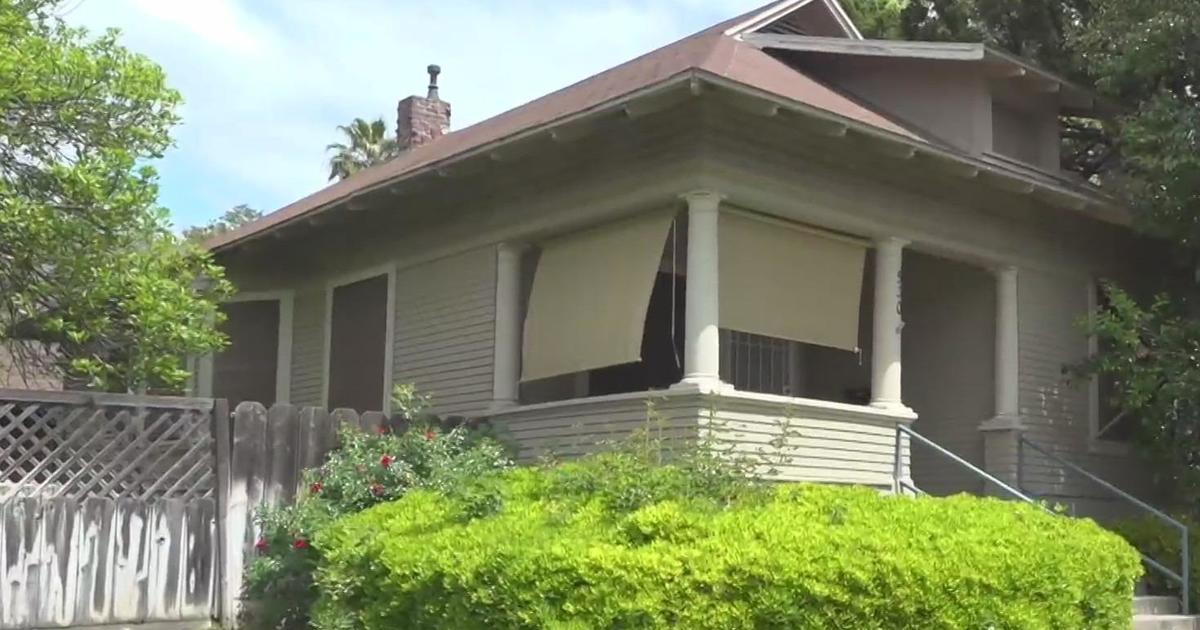California May Require Designated Lactation Rooms In All Workplaces
SACRAMENTO (CBS13) - New and renovated work buildings will need to include designated lactation rooms for all breastfeeding moms in California if a new bill becomes law.
Senator Wiener introduced Senate Bill 142 last week after a similar effort was vetoed by Governor Jerry Brown in October.
This version would require California building standards to change in order install designated lactation spaces for new mothers. The number of lactation spaces required would be based on the number of employees (ie: 1 space for 50-150 employees, 2 spaces for 151-300 employees, etc.). The room would require employers to provide access to a sink and refrigerator in close proximity to the new mom's work space.
SEE: Push to Extend Paid Parental Leave Gaining Momentum
Employers would also need to develop and implement lactation accommodation policies. The Department of Labor Standards would also create a model lactation accommodation form that employers and employees could download from its site. Included in the form would be a list of optional, but recommended, amenities:
- A permanent lactation location that is suitable for the preparation and storage of food.
- A door that can be locked from the inside.
- At least one electrical outlet.
- A washable, comfortable chair.
- Adequate lighting.
- The ability to partition the room.
- A refrigerator that the employer permits employees to use for storage of breast milk.
- A sink with hot and cold running water.
- A hospital-grade breast pump.
- A full-length mirror.
- A microwave.
- A locker to place personal belongings.
- A permanent sign outside designating the room for lactation accommodation.
SB 142 would also prohibit employers from "discharging, or in any other manner discriminating or retaliating against, an employee for exercising or attempting to exercise rights under these provisions."
Current California and federal law requires employers to give nursing mothers a reasonable amount of break time to express milk. It also requires employers to make efforts to provide the employee with a private area to express milk.
Last fall, Governor Brown signed AB 1976 into law, but vetoed SB 937, stating: "I have already signed AB 1976 which furthers the state's ongoing efforts to support working mothers and their families. Therefore, this bill is not necessary."
The bills had some similarities and some major differences.
Both bills required employers to make efforts to provide the employee with a private area to express milk in close proximity to their work space that is not a bathroom. California law only stipulated that area can not be a toilet stall, while federal law states it can not be a bathroom.
AB 1976 allows employers to offer a temporary lactation location if they can not create a permanent space. The temporary location would need to be private and free from intrusion while an employee expresses milk, as well as only be used for lactation purposes while an employee expresses milk.
The American Academy of Pediatrics recommends moms nurse their infants exclusively for the first six months. According to the California Department of Public Health, 94% of moms began breastfeeding in 2016; however, only 24.8% were exclusively breastfeeding at six months.
The Surgeon General issued a Call to Action report in 2011. It included research on the benefits of breastfeeding for babies: protection from illnesses and infections, less likely to develop asthma, less likely to become obese; and for mothers: decreased risk of breast and ovarian cancers.
Last year Senator Wiener cited California Department of Public Health statistics, saying only 52% of nursing parents have workplace breastfeeding support. They further said nursing parents provided time and space to express milk are two times as likely to exclusively breastfeed for the recommended six months.
San Francisco passed the first-in-the-nation Lactation in the Workplace Ordinance in 2017 requiring employers to provide lactation breaks and a lactation location. The ordinance also defines minimum standards for lactation spaces and outlines best practices.
The federal law was passed in 2010, as part of the Affordable Care Act. Employers are required to provide "a reasonable break time for an employee to express breast milk for her nursing child for 1 year after the child's birth each time such employee has need to express the milk;" and "a place, other than a bathroom, that is shielded from view and free from intrusion from coworkers and the public, which may be used by an employee to express breast milk."




